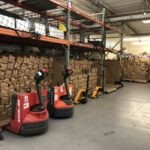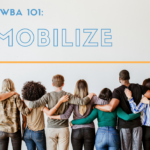Search
Addressing Barriers to Saving
November 19, 2019
UWBA Brings Community Partners Together to Discuss Work That Is Addressing Barriers to Saving
Over the last year, United Way Bay Area (UWBA) has been working with United Ways of California to spread the word about CalSavers, a new retirement savings program designed to give Californians an easy and simple way to save. At UWBA, we believe that savings and building wealth is a key part of breaking the cycle of poverty for working families in the Bay Area.
Last week, we hosted a conversation about retirement savings and the barriers people in the Bay Area (and beyond) face in accessing retirement savings programs. Joe Morgan, Financial Planner at JWM Wealth Management shared retirement savings basics, including types of retirement accounts, the power of compound interest, and key investment principles. This was an important backdrop to the conversation on barriers to saving.
Ana Lagunas, Client Success Manager at Mission Asset Fund (MAF) showed us how MAF is addressing systemic barriers by building a fair financial marketplace that is accessible to everyone, including immigrants and low-income households. MAF meets people where they are and builds on the strengths and resources in the local community. Their Lending Circles take a common practice present in many cultures and turns it into a credit-building activity that increases savings and better positions a family for their future financial needs.
Jeannine Esposito, Development and Impact Manager at Self-Help Credit Union shared how they are also building trust within underserved communities by giving individuals a much needed second chance, including members with a Chex System history. They are designing banking products like a Club Account to help people save for planned expenses or an emergency.
Saúl Gonzalez, a Financial and Life Coach at Mayan Latinx Coaching, helped us understand that the ability to save is also tied to one’s personal or emotional history and habits. In his practice, he coaches the “whole person” which requires uncovering their motivation, understanding where they come from and making a plan to move forward. Finances are only part of a person’s story and it’s important to uncover a client’s “gap”—that is the space between a person’s current situation and their ideal future.
We thank all of our panelists and participants for sharing the important work that they are doing to create access to opportunity for Bay Area communities that have been previously left out. At United Way, we envision a vibrant, strong and inclusive community that works for us all. The ability to save for the future and participate in our financial systems allows families to build the life they want for themselves, their families and our communities.


